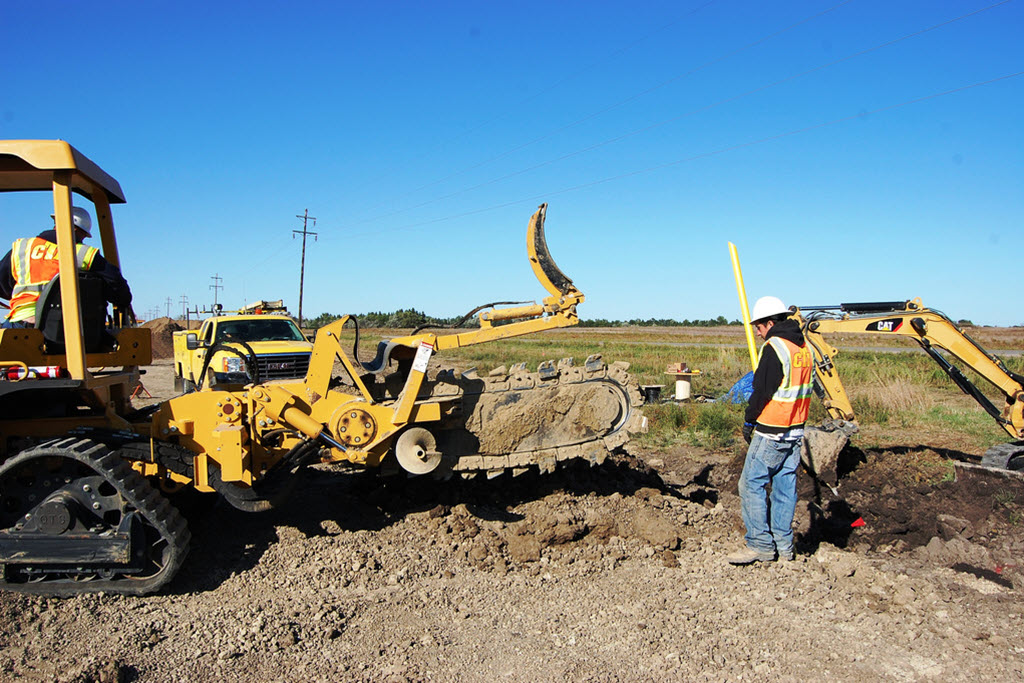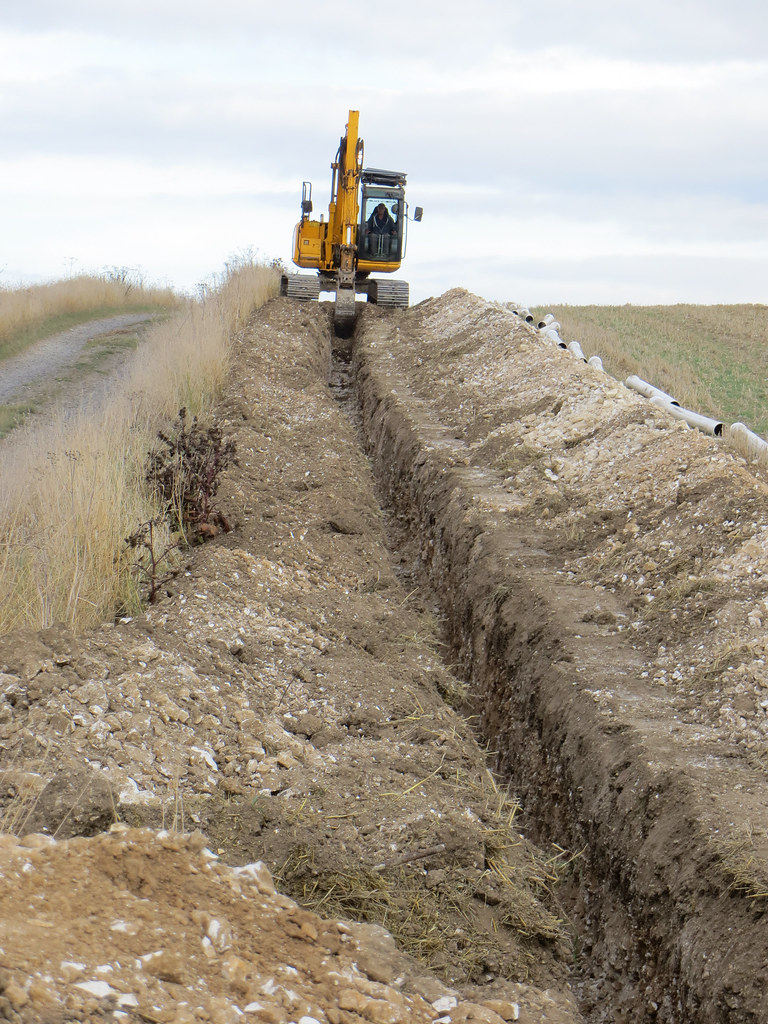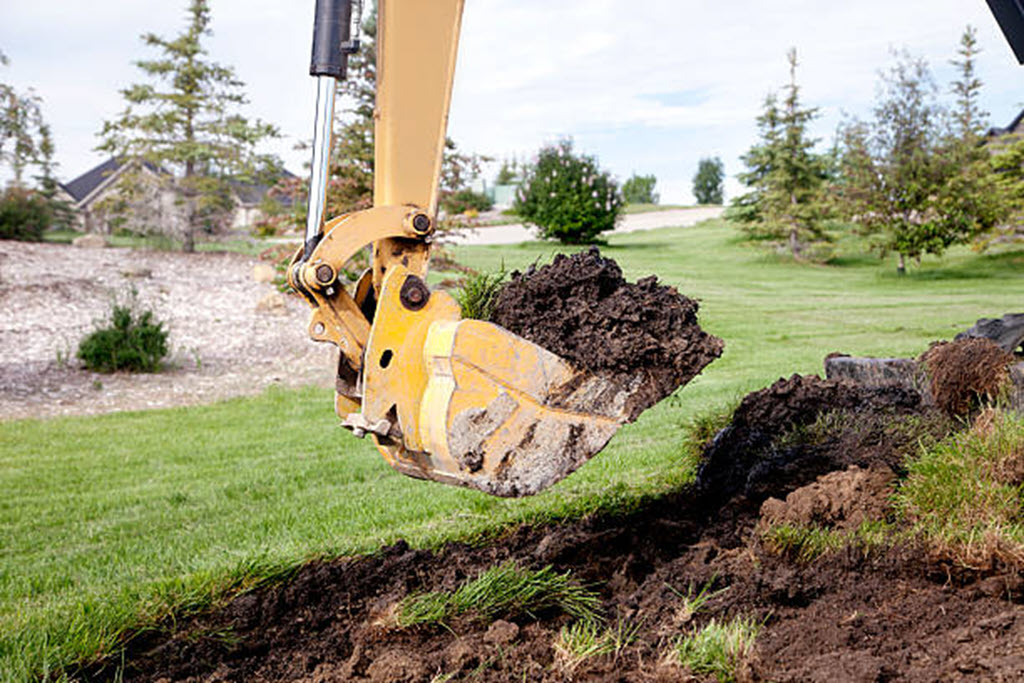Cable Trenchingsin Grosse Pointe Farms MI
Cable Trenching Done Right for Secure Utility Installations
We Are Locally Owned & Operated For Over 37 Years
Contact Us Today!
We Serve Businesses In And Around The Following Cities:
About Cable Trenchings
Introduction: Unearthing the Essence of Cable Trenching in Commercial Applications
Imperative to all manner of infrastructure and construction projects in the expansive city of Grosse Pointe Farms, cable trenching is the backbone of a technologically advanced and interconnected community. Meticulously mastered by the local specialists of D&J Contracting, this process of digging trenches to safely house utility cables, such as those for electricity, internet, gas or water, serves as the vital undercurrent of the city’s heartbeat. Integrating the process seamlessly into urban development projects, their skilled trench digging services ensure a smooth and reliable supply of cable connected resources for countless commercial properties.
An Overview of the Cable Trenching Process
In essence, cable trenching involves excavating long, narrow trenches in the ground to embed utility cables out of sight, protecting them from both damage and exposure. The process commences with the evaluation of blueprints, following which trenching contractors determine the location of the trench. Preferably, the trenches should be dug where they are least likely to be disturbed, echewing a balance between aesthetics and functionality.
A trench for a propane line, for instance, or a trenching for utilities task necessitate careful planning by the trench digging contractor. For effective trenching, D&J Contracting employs state-of-art machinery and precise hand tools. The work does not cease after the laborious process of trenching; it’s followed by the meticulous task of installing the cables, filling the trench back with soil, and restoring the landscape to its former state.
Importance of Partnering with the Right Trenching Contractors
When it comes to crucial tasks like trenching for utilities, the right expertise can differ an effective job from a botched project. A skilled trenching contractor, fully cognizant of the local soil conditions and weather parameters, can ensure a successful completion of the project within the demanded timeframe. Aligning with the need for experienced trench digging services near you, D&J Contracting has indubitably established a stronghold over the domain in Grosse Pointe Farms.
Not all trenching companies’ve the in-depth knowledge and the necessary skill set that D&J Contracting brings to the table. When it comes to commercial properties, the complexity only increases manifold. So, who better than a local trenching excavation company that carries a comprehensive understanding of the soil conditions and zoning regulations of your city? Be it a trench for propane line, or utility line trenching, the precision with which D&J Contracting undertakes their projects stands as testimony to their unmatched professionalism.
Unveiling the Benevolent Benefits of Cable Trenching
Cable trenching plays a vital role in masking unsightly overhead cables, giving commercial settings a neater and more aesthetically pleasing outlook. More than just for aesthetic reasons, trenching and boring contractors ensure that the cables are safeguarded from adverse weather conditions, accidental contact or damage, thereby averting unnecessary outages or repairs. An outage can severely affect the operations of a commercial entity, potentially contributing to considerable financial losses.
Additionally, with an increasing emphasis on adhering to safety standards, opting for professional trench digging services counters the risk of accidental contact with overhead cables. When it concerns commercial properties, avoiding legal implications originating from non-adherence to safety standards is undeniably a major concern.
Coming from a real-world example, a construction company in Grosse Pointe Farms that undertook the services of D&J Contracting for utility line trenching was able to not only protect their utility lines from potential damages from an approaching storm but also ensured the continued smooth operation of their business, besides making their property visually more appealing.
Final Reflection and Path Forward
In summary, cable trenching isn’t merely about digging a trench and embedding cables. It’s an intricate task that demands meticulous precision, expert knowledge, and a deep understanding of the locale’s distinct features. Its relevance in ensuring seamless operations for commercial properties cannot be overstated. In Grosse Pointe Farms, the right amalgamation of these crucial attributes is fulfilled by the D&J Contracting, the local champions of this specialty.
Whether you require a trench for a propane line or a comprehensive utility line trenching solution, D&J Contracting is well-equipped and proficiently experienced. As you consider this pivotal task for your commercial property, remember, a well-executed trenching job doesn’t merely install cables. It safeguards the lifelines of your business operations, reassuring a seamless functionality towards a promising road ahead.
Cable Trenchings Gallery


Call Us Today to receive your Free Quote for
Cable Trenching in Grosse Pointe Farms
Serving: Grosse Pointe Farms, Michigan

About Grosse Pointe Farms, Michigan
The area that would become Grosse Pointe Farms was originally incorporated as the Village of Grosse Pointe in 1879. By 1889, the village extended from land just above Provencal Road in the northeast to Cadieux Road in the west. In 1893, the portion of the village east of Fisher Road broke off and incorporated as the Village of Grosse Pointe Farms after a dispute over the location of a tavern. It was not until 1949, however, that the village incorporated as a city.
The U.S. Postal Service operates the Grosse Pointe Post office in Grosse Pointe Farms.
According to the United States Census Bureau, the city has a total area of 12.32 square miles (31.91 km), of which 2.75 square miles (7.12 km) is land and 9.57 square miles (24.79 km) is water. The water is part of Lake St. Clair.
The Farms has a more varied topography and streetscape than the other southern Grosse Pointes. While Grosse Pointe and Grosse Pointe Park are built on a standard street grid and are basically flat, Grosse Pointe Farms is partially built on the same grid flowing out of Detroit, but also features districts with irregular, curving street paths. A low but noticeable ridge runs through the center of the city. The Farms also contains the “point” in Grosse Pointe, where, just east of the Grosse Pointe War Memorial, there is a large bend in the lakeshore, such that those on the shoreline face east, instead of south, as they do when on the shoreline of neighboring Grosse Pointe, closer to the entrance of the Detroit River.
The cityscape varies widely, with large sections of old homes ranging from bungalows to mansions, and a few newer sections with ranch houses or luxury homes built on subdivided estates. The Farms has a downtown on Kercheval Avenue combining historic buildings with newer, neo-traditional storefronts.
| Census | Pop. | Note | %± |
|---|---|---|---|
| 1900 | 817 | — | |
| 1910 | 862 | 5.5% | |
| 1920 | 1,649 | 91.3% | |
| 1930 | 3,533 | 114.3% | |
| 1940 | 7,217 | 104.3% | |
| 1950 | 9,410 | 30.4% | |
| 1960 | 12,172 | 29.4% | |
| 1970 | 11,701 | −3.9% | |
| 1980 | 10,551 | −9.8% | |
| 1990 | 10,092 | −4.4% | |
| 2000 | 9,764 | −3.3% | |
| 2010 | 9,479 | −2.9% | |
| 2020 | 10,148 | 7.1% | |
| U.S. Decennial Census | |||
As of the census of 2010, there were 9,479 people, 3,718 households, and 2,770 families residing in the city. The population density was 3,446.9 inhabitants per square mile (1,330.9/km). There were 3,952 housing units at an average density of 1,437.1 per square mile (554.9/km). The racial makeup of the city was 95.4% White, 1.8% African American, 0.2% Native American, 1.3% Asian, 0.4% from other races, and 1.0% from two or more races. Hispanic or Latino of any race were 2.0% of the population.
There were 3,718 households, of which 33.7% had children under the age of 18 living with them, 66.0% were married couples living together, 6.2% had a female householder with no husband present, 2.3% had a male householder with no wife present, and 25.5% were non-families. 23.0% of all households were made up of individuals, and 12.3% had someone living alone who was 65 years of age or older. The average household size was 2.55 and the average family size was 3.02.
The median age in the city was 45.1 years. 25.8% of residents were under the age of 18; 4.8% were between the ages of 18 and 24; 19.5% were from 25 to 44; 32.6% were from 45 to 64; and 17.5% were 65 years of age or older. The gender makeup of the city was 48.8% male and 51.2% female.
At the 2000 census, there were 9,764 people, 3,804 households, and 2,868 families residing in the city. The population density was 3,618.8 inhabitants per square mile (1,397.2/km). There were 3,937 housing units at an average density of 1,459.2 per square mile (563.4/km). The racial makeup of the city was 97.58% White, 0.65% African American, 0.11% Native American, 1.13% Asian, 0.11% from other races, and 0.42% from two or more races. Hispanic or Latino of any race were 1.11% of the population.
There were 3,804 households, of which 34.3% had children under the age of 18 living with them, 67.8% were married couples living together, 6.1% had a female householder with no husband present, and 24.6% were non-families. 22.3% of all households were made up of individuals, and 12.0% had someone living alone who was 65 years of age or older. The average household size was 2.57 and the average family size was 3.03.
Age distribution was 26.5% under the age of 18, 3.6% from 18 to 24, 23.4% from 25 to 44, 28.6% from 45 to 64, and 17.9% who were 65 years of age or older. The median age was 43 years. For every 100 females, there were 90.6 males. For every 100 females age 18 and over, there were 87.5 males.
The median household income was $100,153, and the median family income was $109,264. Males had a median income of $87,108 versus $53,241 for females. The per capita income for the city was $54,846. About 1.5% of families and 2.1% of the population were below the poverty line, including 3.1% of those under age 18 and 1.4% of those age 65 or over.
The community is served by Grosse Pointe Public Schools (GPPSS). Public schools within Grosse Pointe Farms include Père Gabriel Richard Elementary School, Kerby Elementary School, Brownell Middle School, and Grosse Pointe South High School. Along with Richard and Kerby, Monteith Elementary School in Grosse Pointe Woods serves a section of the city. All residents are zoned to Brownell. Almost all residents are zoned to GPS High, while those in a northwest section are zoned to Grosse Pointe North High School in Grosse Pointe Woods.
Saint Paul Catholic School is in Grosse Pointe Farms.
The Grosse Pointe Public Library operates the Central Branch in Grosse Pointe Farms.
Call Us Today to receive your Free Quote for
Cable Trenching in Grosse Pointe Farms
Related Services in Grosse Pointe Farms, Michigan
We Serve Businesses In The Following Zip Codes:
48007, 48015, 48021, 48026, 48035, 48036, 48038, 48042, 48043, 48044, 48045, 48046, 48047, 48048, 48050, 48051, 48066, 48071, 48080, 48081, 48082, 48083, 48084, 48085, 48088, 48089, 48090, 48091, 48092, 48093, 48098, 48099, 48225, 48230, 48236, 48310, 48311, 48312, 48313, 48314, 48315, 48316, 48317, 48318, 48397